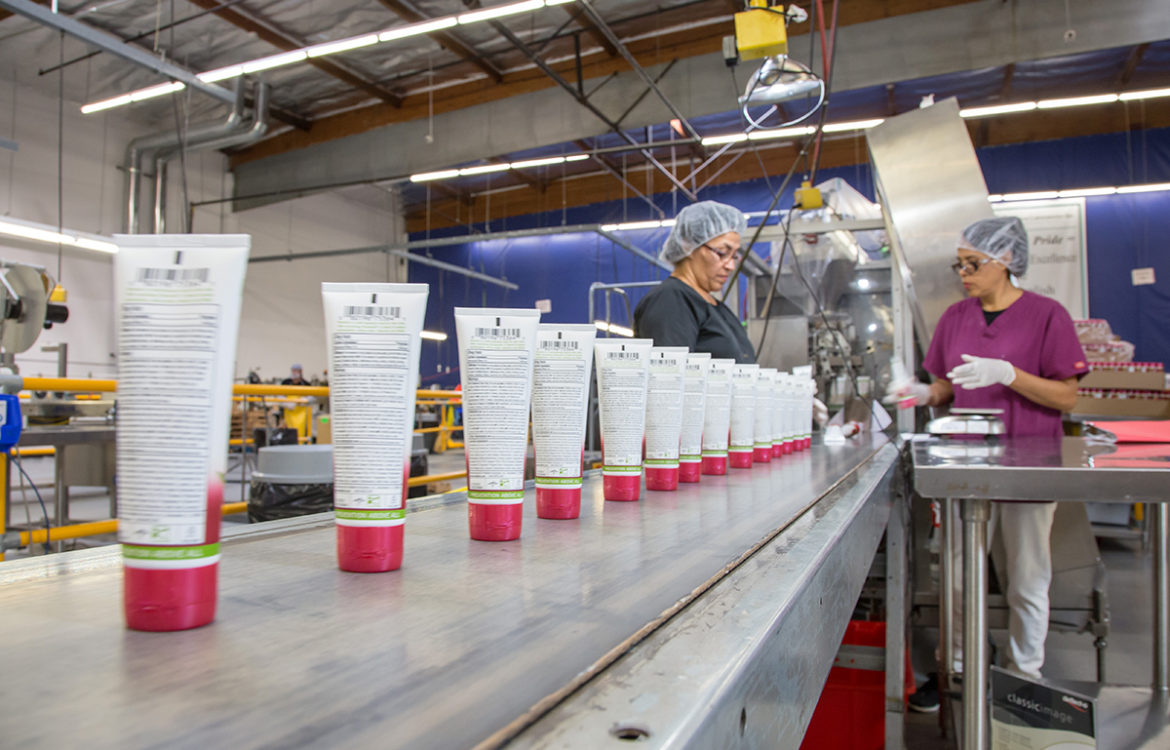It’s an exciting time for the cosmetics and personal care products industries. Many new brands are being created and established brands are seeking new ways to keep up with demand. Both are turning to contract manufacturing as one solution to meet their needs. As this growth continues, there are three important trends we are monitoring.
1. Risk Management
2. Scalability and Direct Delivery for Subscription-based Purchasing
3. Millennials and Safe, High-Quality Ingredients
1. Risk Management
The FDA’s role as an oversight rather than a regulatory agency in the cosmetics and personal care sector, as opposed to the Pharma sector. Given the FDA’s oversight role, risk management is a matter of using appropriate ingredients and avoiding contamination. Risk management is a question of expertise, quality, and procedures.
How do you ensure using appropriate ingredients? At the formulation stage, the lab must check each of the components and determine whether it’s a prohibited ingredient and if so, whether it’s necessary or can be substituted. With some ingredients, it’s also important to assess whether it will be available in sufficient supply for the expected level of production.
How do you ensure your manufacturer will prevent contamination?
Brands need to ensure that their contract manufacturer is handling the ingredients safely at every stage of the process, so they don’t have liability. Do your due diligence with your contract manufacturer to ensure they have the expertise and have established appropriate standard operating procedures. Be sure they have the training and experience on the floor to ensure compliance.
Ask if your contract manufacturers are continuously training and educating their personnel. Issues like containment, proper equipment maintenance, and proper packaging are paramount.
2. Scalability and Direct Delivery for Subscription-based Purchasing
One of the growing areas of the cosmetic and personal care industry is consumers purchasing a subscription that includes a scheduled delivery of products often shipped directly to the consumer. While not new to cosmetics and personal care or other industries, the variety of products that you can get direct online has exploded, from mattresses to inexpensive contact lenses. For cosmetics and personal care, the modern subscription model and replacing of a distributor with a fulfillment model can increase sales and profit margin, but it comes with challenges.
Keeping up with demand is crucial. From a manufacturing standpoint, your contract manufacturer must be able to keep up with the delivery schedule while maintaining quality and purity. Every contract manufacturer has a capacity-limitation. Find out what that is to be sure they can match your needs. In today’s direct-to-consumer marketplace, your needs can change rapidly. Anticipating success is vital.
3. Millennials and Safe, High-Quality Ingredients
Is it sulfate free? Paraben free? Cruelty-free? What about safe for chemically treated hair?
As with many industries at the moment, consumers of all ages are showing a greater interest in the contents of the products they use. This is especially true of Millennials, who are leading the way by demanding safe, high-quality products. Many companies are adapting to meet the need for hyper-personalized products and product delivery like paraben-free makeup, creating a demand for high-quality, safe ingredients.
A third-party group, the Environmental Working Group (ewg.org) developed the Skin Deep Database in 2004 that now tests and rates almost 80,000 personal care products. The database was one of the first third-party resources to look at the toxicity of products using independent testing. Industry trade association Independent Cosmetic Manufacturers and Distributors (ICMAD) supports the Safe Cosmetics Modernization Act which promises transparency in all health and safety decisions and customer protections.
It’s not just what’s on the inside, either. There’s a growing trend for innovative and distinctive packaging, including new and sometimes quirky shapes, colors, and sizes.
Modern contract manufacturers will need to remain flexible and responsive to both the boutique independent and major companies expanding their product lines for the future. Balancing effective risk management, expanding subscription and direct sales models, and the demands of an increasingly aware consumer market are trends right now, but they are rapidly becoming the norm. Ensure your contract manufacturer is ready.


